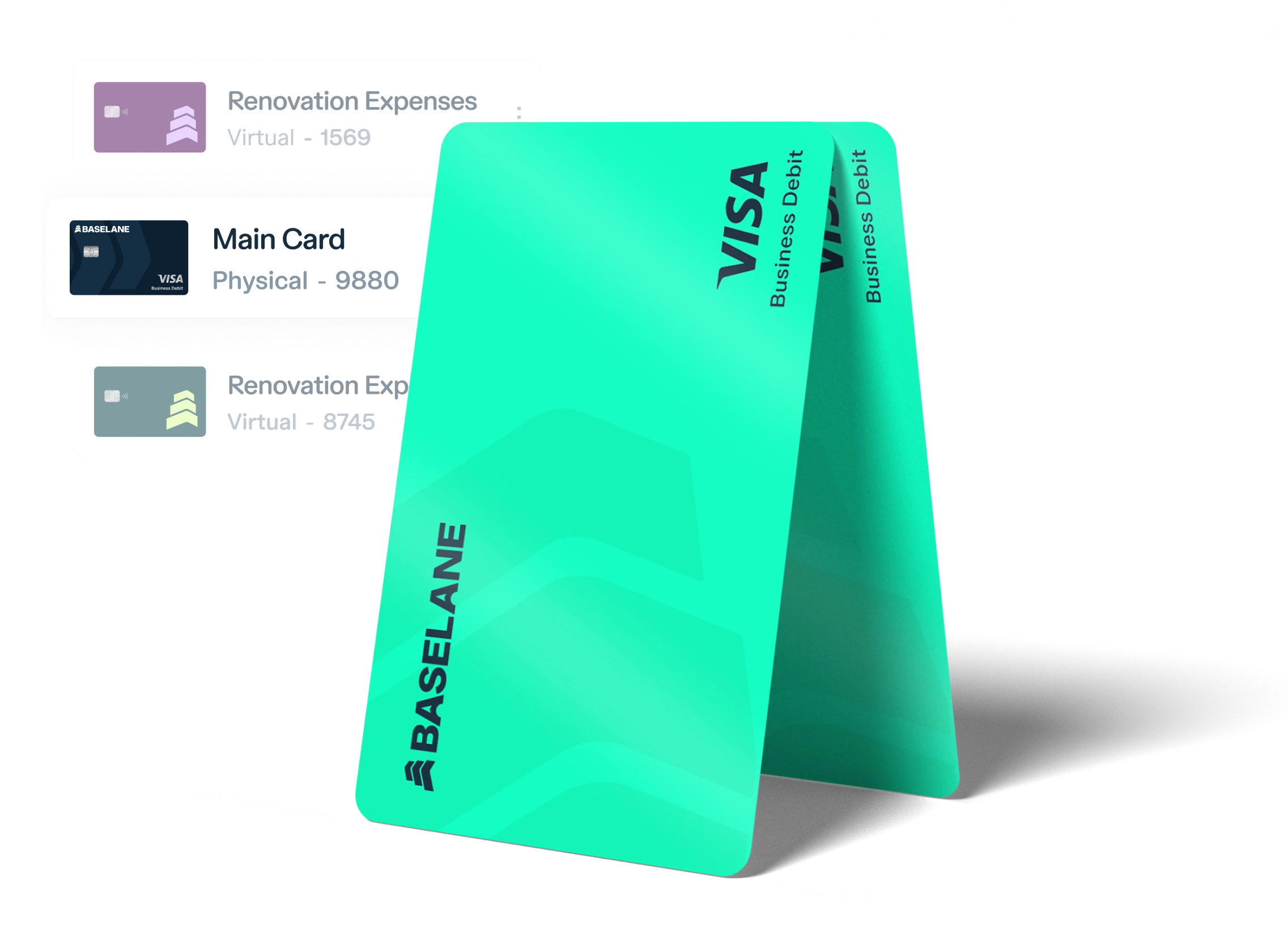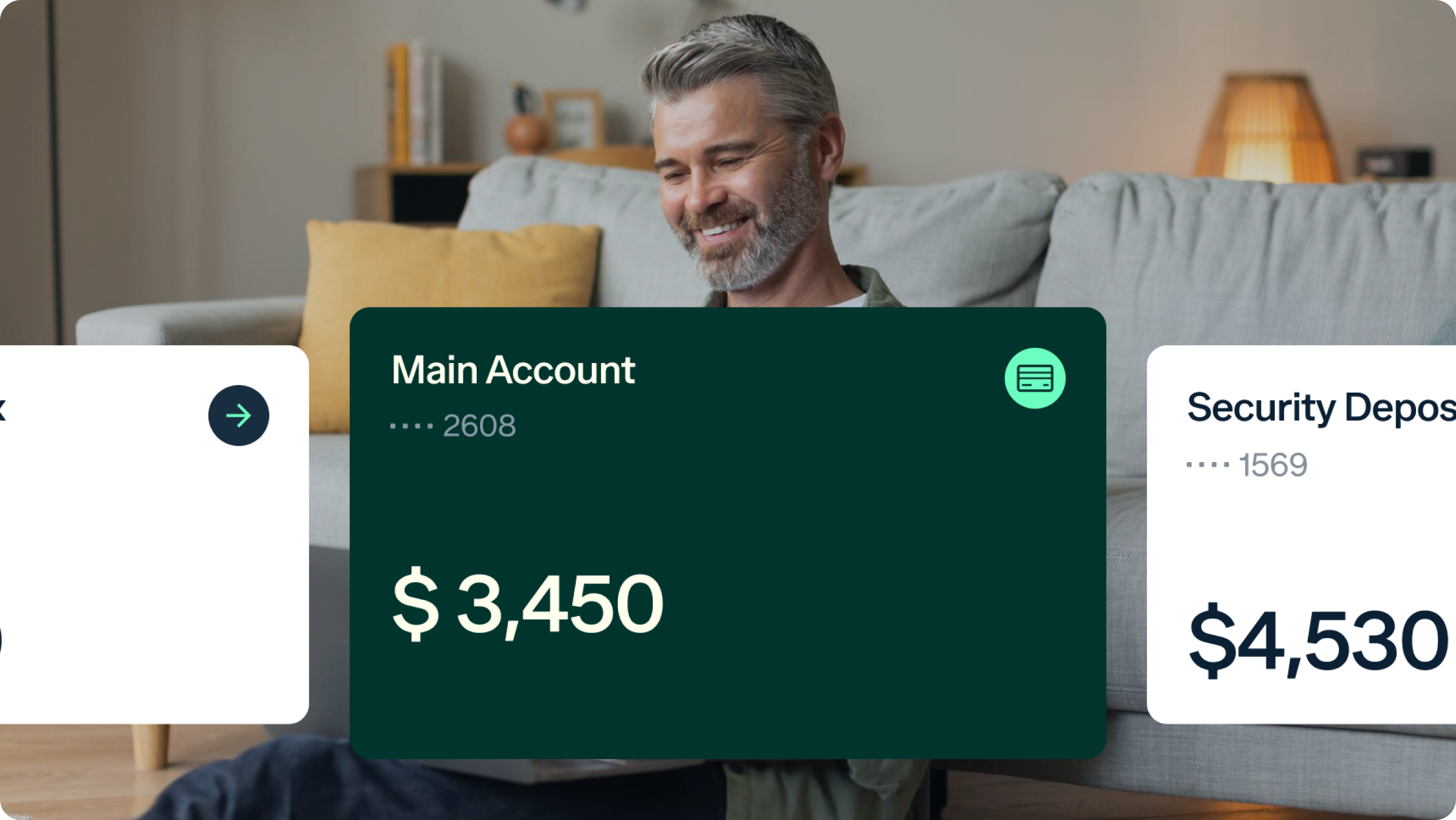Managing the finances for a Homeowners Association (HOA) requires specialized tools and services. Unlike personal banking or even typical small business accounts, HOA banking involves collecting dues from multiple homeowners, managing operational expenses, and maintaining substantial reserve funds for future projects. Finding the right HOA bank account and services is crucial for financial health and transparency.
Key takeaways
- HOAs need specialized banking features beyond basic checking accounts.
- Essential online services include payment processing, separate accounts, and robust reporting.
- Digital payment adoption is increasing, but fees are a key consideration.
- Separating operating and reserve funds is a fundamental requirement.
- Choosing a bank involves evaluating fees, online platform quality, security, and integration capabilities.
What is an HOA reserve fund?
Homeowners’ associations handle significant community funds collected from residents. These funds must be managed responsibly, transparently, and in compliance with governing documents and state laws. Generic business bank accounts often lack the specific features HOAs need, such as easy collection of dues from many sources or dedicated accounts for operating and reserve funds.
Online banking capabilities are no longer a luxury but a necessity for modern HOAs. Online HOA bank services enable board members or managers to access account information, process transactions, and manage funds efficiently from anywhere. This is similar to how successful landlords benefit from online digital banking platforms designed for their specific needs, like managing a bank account for Airbnb properties or other rentals.
Essential online banking features for HOAs
Selecting the right online HOA bank account requires evaluating specific features tailored to community associations. These services streamline financial operations and enhance accountability. Look for banks that offer these core capabilities.
Account management & access
HOA banking platforms should provide 24/7 online access for authorized board members or property managers. Multiple user access levels are often required, allowing different individuals permission for viewing, transactions, or reporting. The ability to easily open and manage separate accounts for various purposes is fundamental.
Deposit solutions
HOAs typically require distinct accounts for day-to-day operations and long-term savings. Operating accounts handle regular income (dues) and expenses (maintenance, utilities). Reserve accounts hold funds specifically designated for future major repairs or replacements, which is a critical part of long-term financial planning.
Banks catering to HOAs offer checking accounts for operations and high-yield online savings accounts, money market accounts, or Certificates of Deposit (CDs) for reserves. Many provide services like ICS/CDARS to extend FDIC insurance coverage beyond standard limits by spreading large deposits across multiple banks. This helps protect substantial reserve balances.
Online payment processing & collections
Efficiently collecting dues from homeowners is a primary function of HOA banking. Online HOA bank services and online payments are increasingly popular. While 92% of organizations still accept paper checks, digital options like eChecks, ACH, credit cards, mobile apps, and online portals are widely used.
Many specialized banks offer lockbox services where homeowners mail checks directly to the bank, streamlining processing and reducing board member involvement. Direct ACH payments from homeowners’ bank accounts are also common and often preferred for lower fees. Credit and debit card payments offer convenience but typically involve processing fees, which can range from 1.5% to 3.5% or more.
Disbursements
Paying vendor bills and other association expenses should also be manageable online. Features for online bill pay and initiating ACH or wire transfers streamline the outgoing payment process. Some platforms offer automated bill payment features, similar to those used by landlords for managing utility bill management software or other property expenses. Saving and managing payee information helps ensure accurate and timely payments.
Reporting & reconciliation
Transparency is key in HOA finance. Online banking platforms should provide real-time access to transaction data and offer customizable reporting features. Easy reconciliation of bank statements with accounting records is essential for accurate bookkeeping. These capabilities help board members maintain clear financial oversight.
Security & fraud prevention
Protecting association funds is paramount. Reputable HOA banks offer robust online security measures. Features like Positive Pay or ACH Filtering help prevent unauthorized transactions. Real-time alerts for account activity provide early warnings about potential fraud.
Accounting software integration
Seamless integration with HOA accounting or property management software saves significant time and reduces errors. Some banks offer integrated technology solutions that sync directly with popular software packages. This streamlines reconciliation and financial reporting. This is comparable to how landlords benefit from integrated financial tools to find the best way to track rental income.
Lending & financing options
Beyond deposit accounts, some banks specializing in community associations offer loans. These can be used to finance major repairs, capital improvements, or even green energy projects without depleting reserves. Understanding these financing options can be valuable for long-term community planning.
How to open a bank account for your HOA
Opening a bank account for an HOA is a formal process that requires specific documentation. It’s not like opening a personal bank account vs business account, but rather requires documentation verifying the existence and authority of the association. This process ensures compliance and proper governance.
Required documentation
To open a bank account for your HOA, you’ll typically need:
- Employer Identification Number (EIN) from the IRS.
- Articles of Incorporation or other organizing documents.
- HOA Bylaws or governing documents.
- Minutes of the board meeting authorizing the opening of the account and specifying authorized signers.
- Identification (such as driver’s licenses) for the authorized signers.
Steps to opening the account
Once you have the necessary documents, the steps usually involve:
- Researching and choosing a bank with specialized HOA services that meet your needs.
- Contacting the bank’s commercial or association banking department.
- Completing the necessary application forms.
- Providing all required documentation.
- Having the authorized board members sign the account documents.
- Making the initial deposit to activate the account.
The bank’s association banking specialist can guide you through this process.
Top online HOA bank accounts & services
Several providers position themselves as the best free virtual bank account options for HOAs, offering no-fee checking, high-yield reserves, and digital payment tools.
Evaluating them based on the features discussed earlier is crucial. Here is a comparison of some mentioned in the research:
Comparison table of the top online HOA banking platforms
Here is a comparison table of the top online HOA banking platforms.
| Feature | Baselane | Alliance Association Bank | Cadence Bank | Popular Association Banking | First Citizens Bank | Heritage Bank of Commerce | Union Bank (U.S. Bank) | Valley Bank |
|---|---|---|---|---|---|---|---|---|
| Online Banking Access | Yes | Yes | Yes | Yes | Yes | Yes (24/7 Remote Banking) | Yes | Yes |
| Operating Accounts | Yes (No-fee Banking with Sub-accounts) | Yes (Community Checking) | Yes (Association Checking) | Yes (Checking) | Yes (Basic & Interest Checking) | Yes (Operating Solutions, Reserve Checking with interest) | Yes (Operating Accounts) | Yes (Checking, Checking Plus) |
| Reserve Accounts | Yes (High-Yield Savings, Escrow, Reserve Sub-accounts) | Yes | Yes | Yes (Savings, Money Market, CDs) | Yes (Money Market, CDs, ICS/CDARS, Sweep Accounts) | Yes (Reserve Planning, CDs, ICS, Reserve Checking) | Yes (Money Market, Time Deposit) | Yes (Checking Plus, Money Market, CDs, CDARS, Sweep) |
| Online Payments Accepted (Homeowners) | Yes (Credit/Debit, ACH) | Yes (Assessment payment services) | Yes (Online banking) | Yes (Online account access) | Yes (Pay HOA Fees Portal, ACH, Wire Transfers) | Yes (Multiple Payment Channels: Credit Cards, eCheck, ACH, U.S. mail) | Yes (Online account access, lockbox payment processing, remote deposits, ACH) | Yes (Online banking) |
| Accounting Software Integration | Yes (Credit/Debit, ACH) | Yes (Assessment payment services) | Yes (Online banking) | Yes (Online account access) | Yes (Pay HOA Fees Portal, ACH, Wire Transfers) | Yes (Multiple Payment Channels: Credit Cards, eCheck, ACH, U.S. mail) | Yes (Online account access, lockbox payment processing, remote deposits, ACH) | Yes (Online banking) |
| Accounting Software Integration | Yes (Built-in financial tracking, downloadable reports) | Not explicitly mentioned | Not explicitly mentioned | Not explicitly mentioned | Yes (QuickBooks, APIs) | Yes (Three distinct integrated technology solutions) | Yes (Compatible with 60 accounting software packages) | Not explicitly mentioned |
The right banking factors to consider
Selecting the right banks for HOA needs careful evaluation beyond just available features. Consider these factors to find the best fit for your community. This process is similar to choosing a bank for any real estate venture, like finding a landlord business bank account.
Online banking platform usability
An intuitive and reliable online banking platform is critical for daily operations. The interface should be easy for authorized users to navigate, perform transactions, view statements, and generate reports. Testimonials or demos can help gauge usability.
Fee structure and transparency
Understanding all potential fees is essential to avoid unexpected costs. Inquire about monthly service fees, transaction fees (especially for ACH, wires, or card payments), lockbox fees, and fees for statements or other services.
Look for transparent pricing and options to avoid bank fees where possible. Some banks may offer a fee-free bank account with sub-accounts under certain conditions, like maintaining minimum balances.
Security features
Review the security measures offered by the bank’s online platform. Features like multi-factor authentication, encryption, and fraud monitoring services are vital. Ask about their protocols for protecting sensitive association and homeowner data.
Customer support and HOA expertise
Having access to responsive customer support familiar with the specific needs of HOAs can be invaluable. Ask if they have dedicated association banking specialists. Their expertise can help navigate complex transactions or compliance questions.
Integration capabilities
If your HOA uses specific accounting or property management software, check if the bank’s online platform integrates seamlessly. This can automate data entry and reconciliation, saving significant time. Some banks mention compatibility with various accounting software packages.
Banking Built for Real Estate Businesses
Open unlimited security deposit accounts and collect rent, deposits & fees online for free.
Managing HOA reserve funds effectively online
Reserve funds are the lifeblood of an HOA’s long-term financial health. They cover significant planned expenditures like roof replacements, paving, or major repairs, preventing the need for large special assessments. Managing these funds effectively online is key.
Importance of reserves
Adequately funded reserves maintain property values and financial stability for the community. They demonstrate good fiscal management and planning. State laws or governing documents often mandate maintaining reserve funds.
Account options for reserves
Online banking platforms offer several options for reserve funds:
- Money market accounts: Offer liquidity and potentially higher interest rates than standard savings accounts.
- Certificates of deposit (CDs): Provide fixed interest rates for set terms, offering predictable returns but less liquidity.
- CD laddering: A strategy involving staggering CD maturity dates to provide periodic access to funds while maximizing interest earnings.
- ICS/CDARS: Services that place large deposits in smaller increments across multiple FDIC-insured banks to keep the entire balance insured [Heritage Bank of Commerce]. This is crucial for HOAs with substantial reserve balances.
Choosing the right mix of these accounts depends on the HOA’s reserve study, which outlines projected future expenses and funding needs. Online platforms should make it easy to open and manage these separate accounts. Landlords also benefit from separate accounts and strategies to get a high-yield savings account for their property reserves.
HOA software vs dedicated bank: Which is right for you
Some HOA management software platforms now offer integrated banking features, sometimes described as HOA software with integrated banking. This can blur the lines between banking and management tools. Understanding the difference is key.
Dedicated HOA banks specialize in financial services for associations, offering features like lockbox, treasury management, and complex reserve account structures. Their primary focus is the secure and efficient handling of money. Integrated software solutions, while offering banking, may prioritize management tasks like communication and covenant enforcement, with banking as a supplementary feature.
For HOAs prioritizing robust financial controls, in-depth reporting, advanced fraud protection, and specialized lending options, a dedicated HOA bank account may be a better choice. For smaller HOAs or those heavily reliant on a specific software platform, integrated banking might offer convenience, provided it meets all necessary financial requirements and security standards. It’s crucial to evaluate the depth of the financial tools offered by integrated software compared to a specialized financial institution.
Banking solutions for small HOAs
Small HOAs with fewer units and potentially lower annual budgets also require proper financial management. While some banks cater primarily to large associations, many offer services suitable for small HOA bank account needs. They still need separate operating and reserve accounts and transparent record-keeping.
Online-focused banks or credit unions might offer more competitive fee structures or lower minimum balance requirements.
But to ensure clarity and compliance, small HOAs should still look for the best bank for multiple accounts that can separate daily operations from long-term reserves.
However, ensuring they understand HOA-specific requirements and offer necessary features like multiple signers and clear reporting is vital. Don’t compromise on security or the ability to keep funds segregated properly. The principles of financial separation are just as important for a small HOA as they are for managing finances for a single rental property or even a bank account for Airbnb.
The future of HOA banking trends for 2025
The landscape of HOA banking is evolving, driven by technology and demands for greater transparency. Trends point towards increased adoption of digital payment methods. ACH Same Day payment volume, for instance, saw a 45% increase in 2024.
Future trends include further technology consolidation, potentially offering more comprehensive HOA software with integrated banking solutions that truly merge financial and management tasks seamlessly. Increased use of AI for transaction categorization and fraud detection is likely. The demand for real-time financial transparency and easy access to reports online will continue to grow.
HOAs will increasingly expect banking partners to provide secure, user-friendly online platforms that reduce administrative burden and enhance financial oversight. This mirrors the shift towards more integrated and automated financial tools seen in the broader real estate banking landscape serving investors and property managers.
Bottom line
Choosing the right HOA bank account and services is a critical decision impacting an association’s financial health and operational efficiency. Prioritize banks offering specialized features like separate account types for operating and reserves, robust online payment processing including lockbox and ACH options, and strong security measures. Evaluate the online platform’s usability, fee structure, and customer support expertise.
Selecting a partner with integrated accounting capabilities can further streamline workflows. While integrated software solutions exist, dedicated HOA banks often provide deeper financial services and security features. Regardless of HOA size, maintaining distinct operating and reserve funds is non-negotiable. By carefully considering these factors and leveraging online tools, HOA boards can ensure responsible stewardship of community funds now and into the future.
Managing property finances, whether for an HOA or a rental portfolio, benefits greatly from specialized tools. Discover how Baselane’s banking platform helps you streamline finances, track income and expenses, and manage property accounting efficiently. Sign up for free today.
FAQs
HOAs usually need at least two types of accounts: an operating account for daily income and expenses, and a reserve account to save for future major repairs and replacements. Some may also use money market accounts or CDs for reserves.
You will generally need the HOA's EIN, Articles of Incorporation or organizing documents, HOA Bylaws, minutes from the board meeting authorizing the account, and identification for the authorized signers.
Yes, many modern HOA banking services offer online payment options for homeowners, including ACH transfers, credit/debit card payments, and online portals. Digital payment adoption is on the rise.
Yes, funds deposited in FDIC-insured banks are protected up to standard limits. For larger reserve balances, services like ICS/CDARS can extend coverage by distributing funds across multiple banks.








